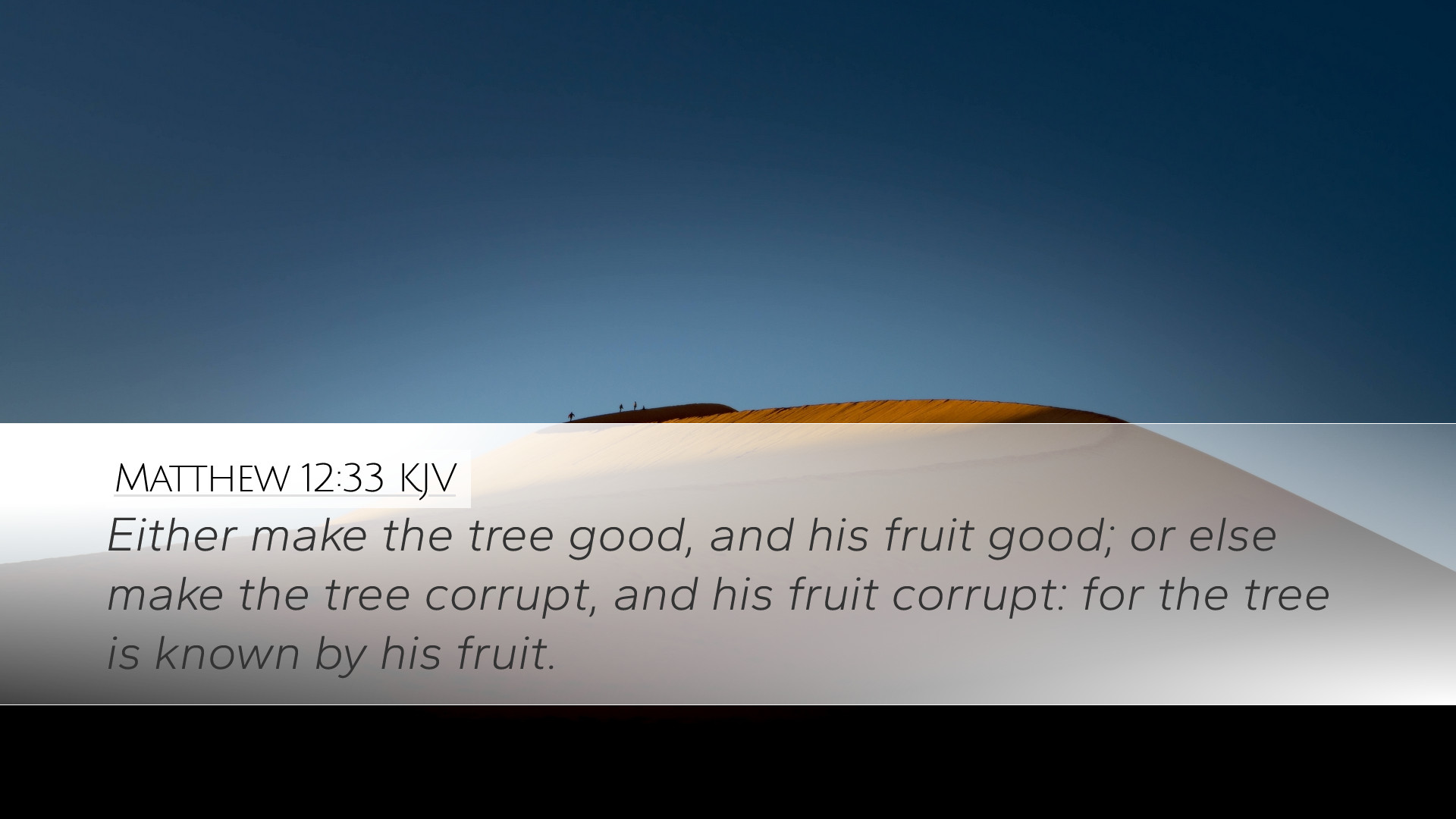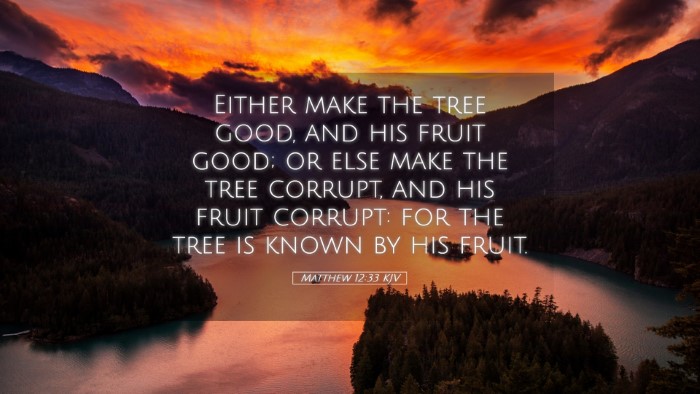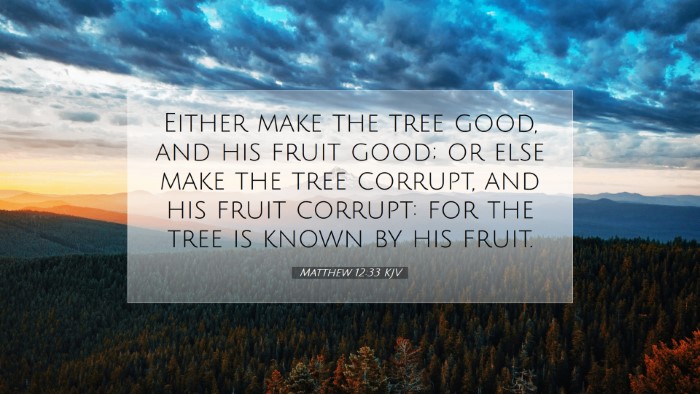Commentary on Matthew 12:33
Verse: "Either make the tree good, and his fruit good; or else make the tree corrupt, and his fruit corrupt: for the tree is known by his fruit."
Introduction
This verse encapsulates a significant principle regarding character and behavior in the teachings of Jesus. Drawing from the insights of various public domain commentaries, we will explore the meaning of this passage, its implications, and its applications for modern-day believers, including pastors, students, theologians, and scholars.
Exegesis and Context
In the immediate context of Matthew 12, Jesus is confronting the Pharisees who have accused Him of casting out demons by the power of Beelzebub. This assertion prompts Jesus to elaborate on the nature of good and evil, highlighting a fundamental truth about moral and spiritual integrity.
Matthew Henry emphasizes that this saying is a declaration of the necessity of good works as an evidence of good character. He explains that the tree represents a person’s nature, which is either good or corrupted. The fruit signifies the actions and moral outcome of one’s character.
Analysis of "Tree" and "Fruit"
The metaphor of the tree and its fruit is a prevalent theme in biblical literature.
- Adam Clarke points out that the tree, in this metaphor, symbolizes the heart and soul of a person, while the fruit signifies the deeds and expressions of one's faith. The quality of fruit is directly related to the quality of the tree.
- Albert Barnes reinforces this idea by noting that a good tree produces good fruit as an inevitable result, which reflects the inherent nature of the individual. An individual whose heart is corrupted cannot produce righteousness, hence why Jesus calls for the assessment of one’s inner state.
Theological Implications
This passage provokes deep theological reflection. It constructs a dichotomy between good and evil, compelling readers to evaluate their spiritual lives critically.
- Henry states that all moral decisions and actions stem from one’s inner being. Therefore, to rectify one’s actions necessitates an inner transformation. It emphasizes that true repentance must come from a change in the heart.
- This insight aligns with the broader biblical theme of regeneration. According to Clarke, true righteousness can only result from a conversion experience wrought by the Holy Spirit.
Practical Applications
For pastors and leaders within the church, this verse serves as a potent reminder of their responsibility to model righteousness.
Moreover, it teaches that congregations are called to foster environments where spiritual growth can flourish, thus producing good fruit in ministry.
Self-Examination
Students and laypeople are encouraged to engage in self-examination. Regular introspection regarding one's spiritual health is crucial in ascertaining whether the fruits of the Spirit are present in their lives.
The Wider Church Context
The implications extend beyond individual character to the corporate health of the church. Barnes indicates that a church that fails to produce good fruit might reflect underlying issues in its leadership and teaching.
As a body of believers, the church must continuously strive to ensure that its foundation is firmly rooted in Christ, enabling them to bear good fruit for the Kingdom.
Conclusion
Matthew 12:33 challenges each believer to reflect on their spiritual integrity. It reminds us that our actions are a reflection of our internal state. By aligning our hearts with Christ—transforming our inner nature—we can expect to produce good fruit that glorifies God.
As we engage with this verse, we are prompted not just to evaluate ourselves but also to encourage one another in our Christian walk, ensuring that our lives, as trees rooted in faith, yield fruit that is unmistakably good.


